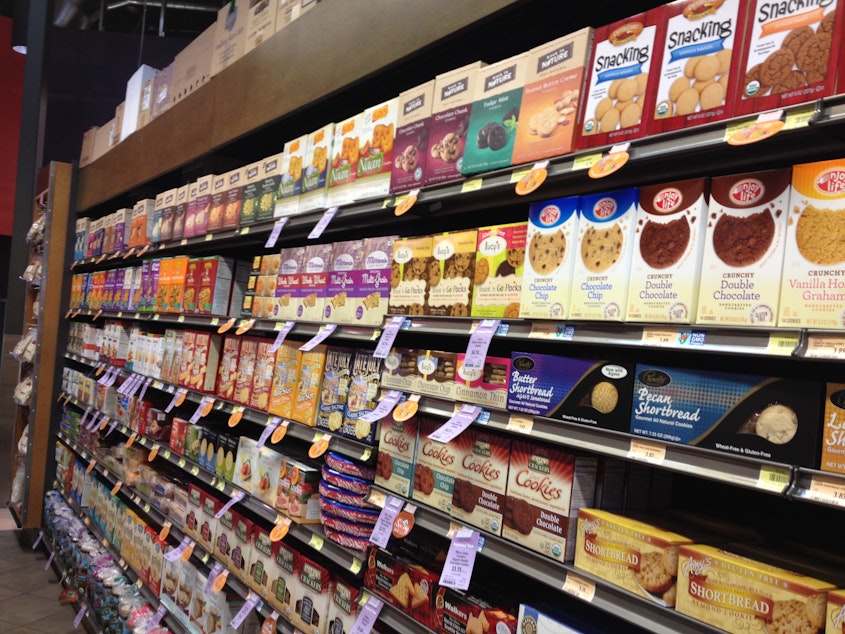Push For GMO Labeling Gains National Momentum

If voters here approve Initiative 522, a measure to require producers to label foods made with genetically modified ingredients, Washington will join two other states that recently enacted similar laws.
In June, the Connecticut Legislature made history when it passed legislation to require labeling of GMO foods. It was the first state in the country to pass a comprehensive labeling law. “We’re not talking about banning GMO foods as many countries in Europe have done,” Connecticut State Senate President Donald Williams said. “We’re just simply talking about being transparent and letting consumers know what’s in the food that they eat.”
Connecticut’s labeling law won’t take effect until other New England states pass similar labeling requirements. Williams said the provision ensures that no one state is at a competitive disadvantage. So far, Maine has followed suit with its own labeling law. To date, at least 20 other states are considering similar bills, an indication of consumers’ growing curiosity about what’s in their food.
At PCC Natural Markets in Edmonds, Wash., spokeswoman Trudy Bialic said that for years, shoppers have asked about some of the products sold here. Even at PCC, considered a beacon for organic products, the store is not entirely GMO-free.
In the store’s center aisle, Bialic pointed to the shelves lined with cookies and crackers. “We’re certain there must be genetically engineered ingredients in these foods,” she said. “But we don’t know because they’re not labeled.”
Bialic, who also co-chairs the Yes on 522 campaign, said packaged foods already provide information about ingredients and nutritional content. Adding a GMO label would be no different.
“We should have a right to know, just like we have labels on natural and artificial colors, fresh or from frozen concentrate juices," she said. "We should know which ones are genetically engineered.”
It’s hard to avoid genetically modified foods in the US. More than 70 percent of our processed foods use genetically engineered ingredients like soy, corn, and sugar beets.
Right now some food companies voluntarily label their products to inform consumers whether their food is made with organic or non-genetically engineered ingredients. But such claims aren’t always verifiable. Bialic says labeling would help standardize the process.
Opponents say labeling would be costly, and not necessarily helpful. Dana Bieber, spokeswoman for No on 522, mentioned genetically modified corn as an example. When processed to make oil, the final product does not contain the genetically modified protein, she said.
“The other day I was making a salad and I looked at the back of my salad dressing and I noticed it had soybean oil,” Bieber said. “And I thought it probably came from a GE soybean.”
Under 522, Bieber said a label would say the dressing contains GMO, but it would not tell the entire story.
"I wouldn’t know how much GE is in there, which ingredient did it come from, and I certainly wouldn’t know the fact that it actually doesn’t contain it,” she said. “That’s where we would get to that misinformation. That just confuses consumers and it provides inaccurate information and that doesn’t help us make any useful decisions.”
Bieber said there are already labels that identify foods that are organic or non-GMO.
But Bialic of the Yes campaign said the only stores that provide those details are specialty stores. She’d like to see people have equal access to information no matter where they buy their food.
As Washington voters contemplate the labeling proposal, a handful of genetically modified products are awaiting approval from the feds before they hit the market. They include transgenic salmon and genetically modified apples.

